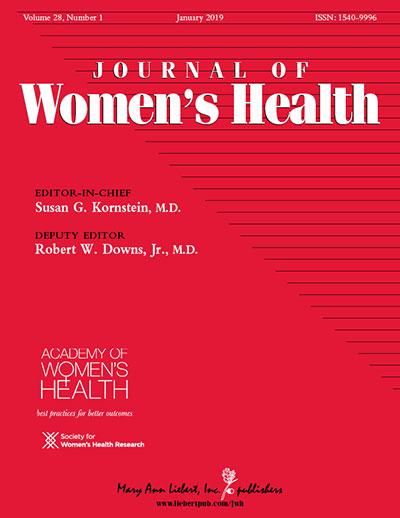
Credit: Mary Ann Liebert, Inc., publishers
New Rochelle, NY, January 23, 2019–A new Centers for Disease Control and Prevention (CDC) study found that smoking in the three months prior to assisted reproductive technology (ART) treatment was associated with higher adjusted odds of cycle cancellation resulting in no embryo transfer and cancellations before fresh oocyte retrieval or frozen embryo transfer. Associations between smoking and selected ART clinical outcomes are described in an article published in Journal of Women’s Health, a peer-reviewed publication from Mary Ann Liebert, Inc., publishers. Click here to read the full-text article free on the Journal of Women’s Health website through February 23, 2019.
This was a retrospective cohort study which used National ART Surveillance System data on ART treatments performed between 2009 and 2013 in all U.S. states and territories. In “Smoking and Clinical Outcomes of Assisted Reproductive Technologies,” Karilynn Rockhill, MPH, CDC (Atlanta, GA) and Oak Ridge Institute for Science and Education (Tennessee) and colleagues from the CDC found that more than 12,000 ART cycles during this period were potentially exposed to smoking. Although smoking increased the odds of cycle cancellation, associations with other clinical outcomes were not significant.
“As smoking may reduce the chance of becoming pregnant with ART, it is important that providers discuss with women the effects of smoking on fertility and pregnancy outcomes,” states Susan G. Kornstein, MD, Editor-in-Chief of Journal of Women’s Health and Executive Director of the Virginia Commonwealth University Institute for Women’s Health, Richmond, VA. “Women should be offered information about effective smoking cessation interventions and support to help them quit smoking before they start ART treatment.”
###
About the Journal
Journal of Women’s Health, published monthly, is a core multidisciplinary journal dedicated to the diseases and conditions that hold greater risk for or are more prevalent among women, as well as diseases that present differently in women. Led by Editor-in-Chief Susan G. Kornstein, MD, Executive Director of the Virginia Commonwealth University Institute for Women’s Health, Richmond, VA, and President of the Academy of Women’s Health, the Journal covers the latest advances and clinical applications of new diagnostic procedures and therapeutic protocols for the prevention and management of women’s healthcare issues. Complete tables of content and a sample issue may be viewed on the Journal of Women’s Health website. Journal of Women’s Health is the official journal of the Academy of Women’s Health and the Society for Women’s Health Research.
About the Academy
Academy of Women’s Health is an interdisciplinary, international association of physicians, nurses, and other health professionals who work across the broad field of women’s health, providing its members with up-to-date advances and options in clinical care that will enable the best outcomes for their women patients. The Academy’s focus includes the dissemination of translational research and evidence-based practices for disease prevention, diagnosis, and treatment of women across the lifespan.
About the Publisher
Mary Ann Liebert, Inc., publishers is a privately held, fully integrated media company known for establishing authoritative peer-reviewed journals in many promising areas of science and biomedical research, including LGBT Health, Transgender Health, Population Health Management, and Breastfeeding Medicine. Its biotechnology trade magazine, GEN (Genetic Engineering & Biotechnology News), was the first in its field and is today the industry’s most widely read publication worldwide. A complete list of the firm’s 80 journals, books, and newsmagazines is available on the Mary Ann Liebert, Inc., publishers website.
Media Contact
Kathryn Ryan
[email protected]
914-740-2250
Original Source
https:/
Related Journal Article
http://dx.




